
ORPHÉE AUX ENFERS
Jacques Offenbach
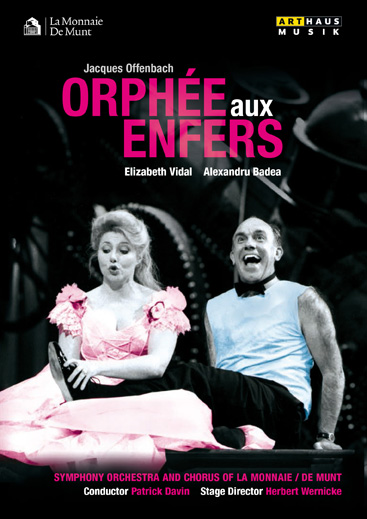



Jacques Offenbach
ORPHÉE AUX ENFERS
1997
Soloists:
Dale Duesing, Elizabeth Vidal, Alexandru Badea
Orchestra, Chorus:
Chorus and Symphony Orchestra of the Théâtre de la Monnaie
Conductor:
Patrick Davin
Director:
Herbert Wernicke
This finely-focused and witty production of Jacques Offenbach’s Orphée aux Enfers with sets, costumes and lighting by the director Herbert Wernicke, is a visual and musical delight. The burlesque – conducted by Patrick Davin – is situated in a famous fin de siècle café and with a stupendous coup de théâtre the ensemble makes its entry into hell in a steam locomotive, which crashes through the ceiling. Elizabeth Vidal and Alexandru Badea in the main roles are supported energetically by the La Monnaie Symphony Orchestra and Chorus and Offenbach’s famous “can-can” is, as ever, an intoxicating highlight. In Offenbach’s light and elegant comedy based on the Greek legend of Orpheus – a veiled satire on Napoleon III’s régime – a dissolute bunch of gods, bored with the cushioned confines of Mount Olympus, are in a rebellious mood. They are delighted to go slumming in Hell with the duplicitous Jupiter, who agrees personally to return Eurydice (now Pluto’s lover) to her reluctant (and unfaithful) husband, hoping that, in the process, she will succumb to his charms.
Label:
Arthaus Musik
Genre:
Oper
Running Time:
120 mins
Picture Format:
16:9
Sound Format:
PCM Stereo
Number of Discs:
1
Region:
0
Languages:
FR
Subtitle Languages:
GB, DE, FR, ES
EAN:
0807280040395
UPC:
807280040395
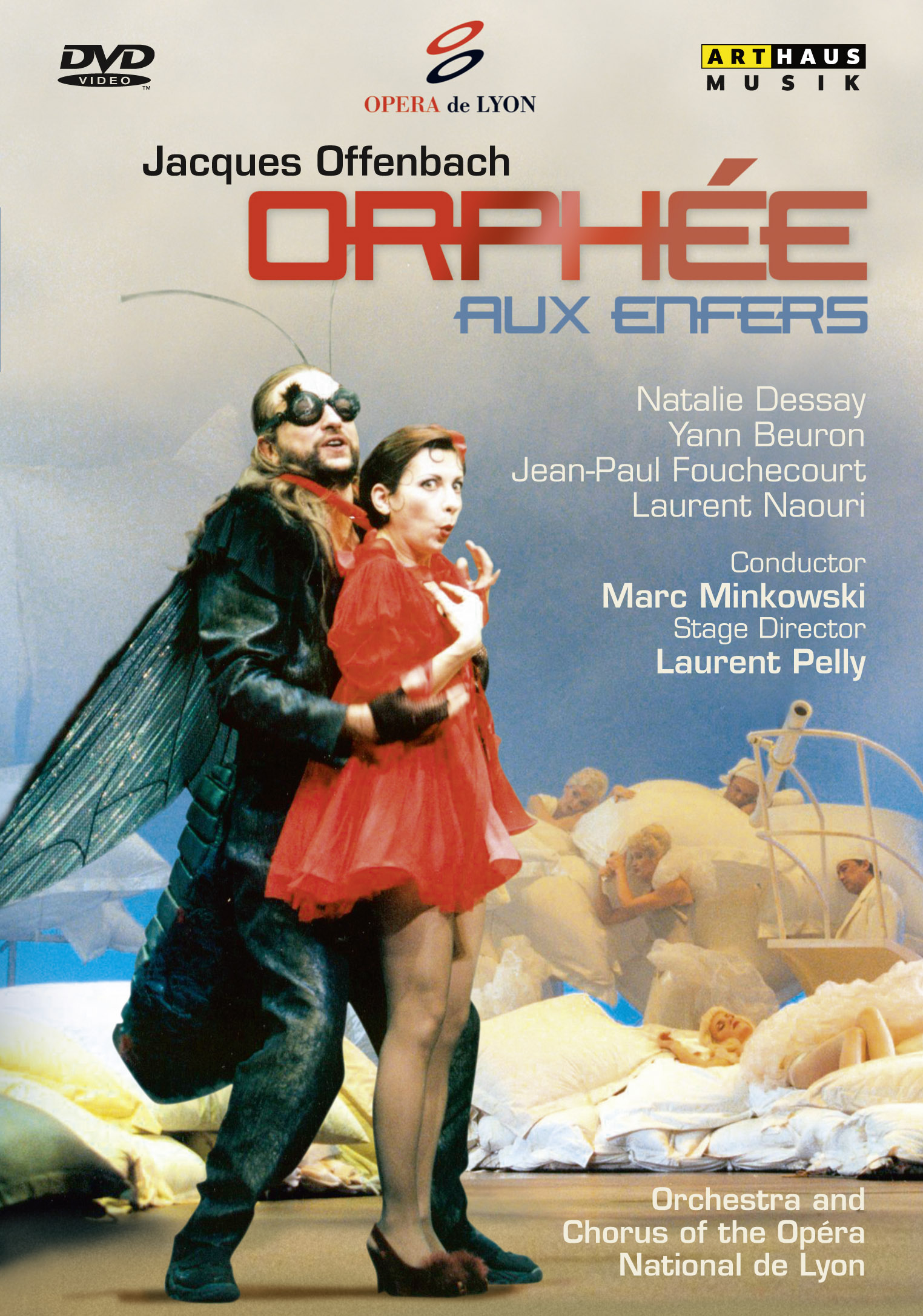
Jacques Offenbach
In the role of Eurydice, Natalie Dessay begins at once with a display of vocal and verbal pyrotechnics, which are then taken up by Yann Beuron as Orpheus. Together they give us an idea of the developments to follow. Dancers and singers melt into a unit. The stage setting and an unconventional choreography sparkle with inventiveness. When Pluto,(...)
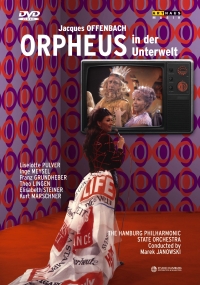
Jacques Offenbach
Orpheus in the Underworld represents a quantum leap in Offenbach’s operetta output, for it would have been unthinkable to have created a stage work of such opulence and extravagance in Paris prior to that time. Strict regulations dating from the era of Napoleon I assigned to each of the city’s theatres a specific dramatic genre and a proportionate(...)









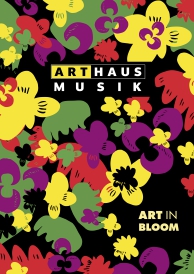 PDF Download (5,5 MB)
PDF Download (5,5 MB)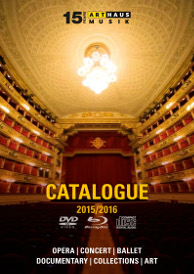 PDF Download (6,7 MB)
PDF Download (6,7 MB)